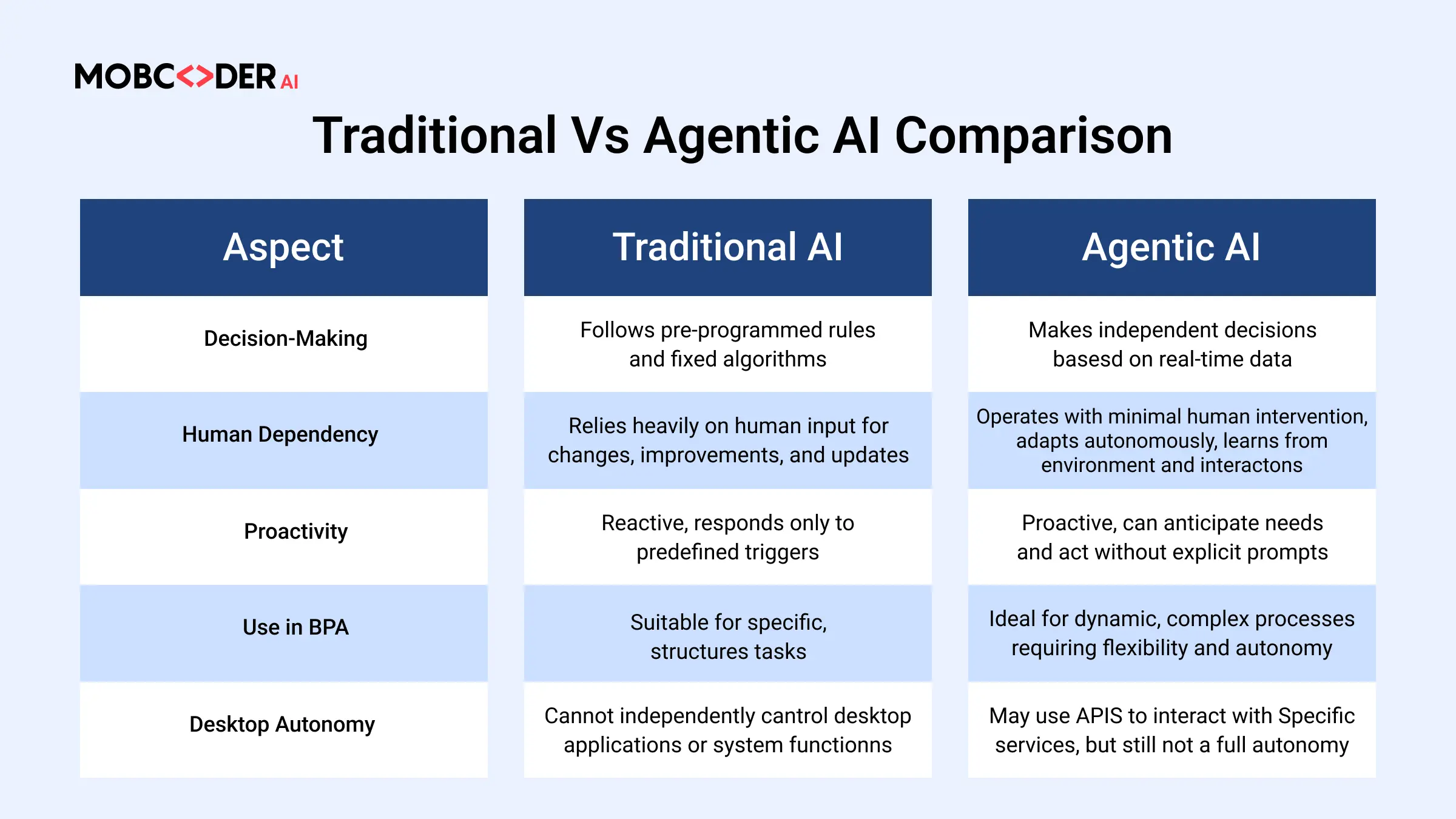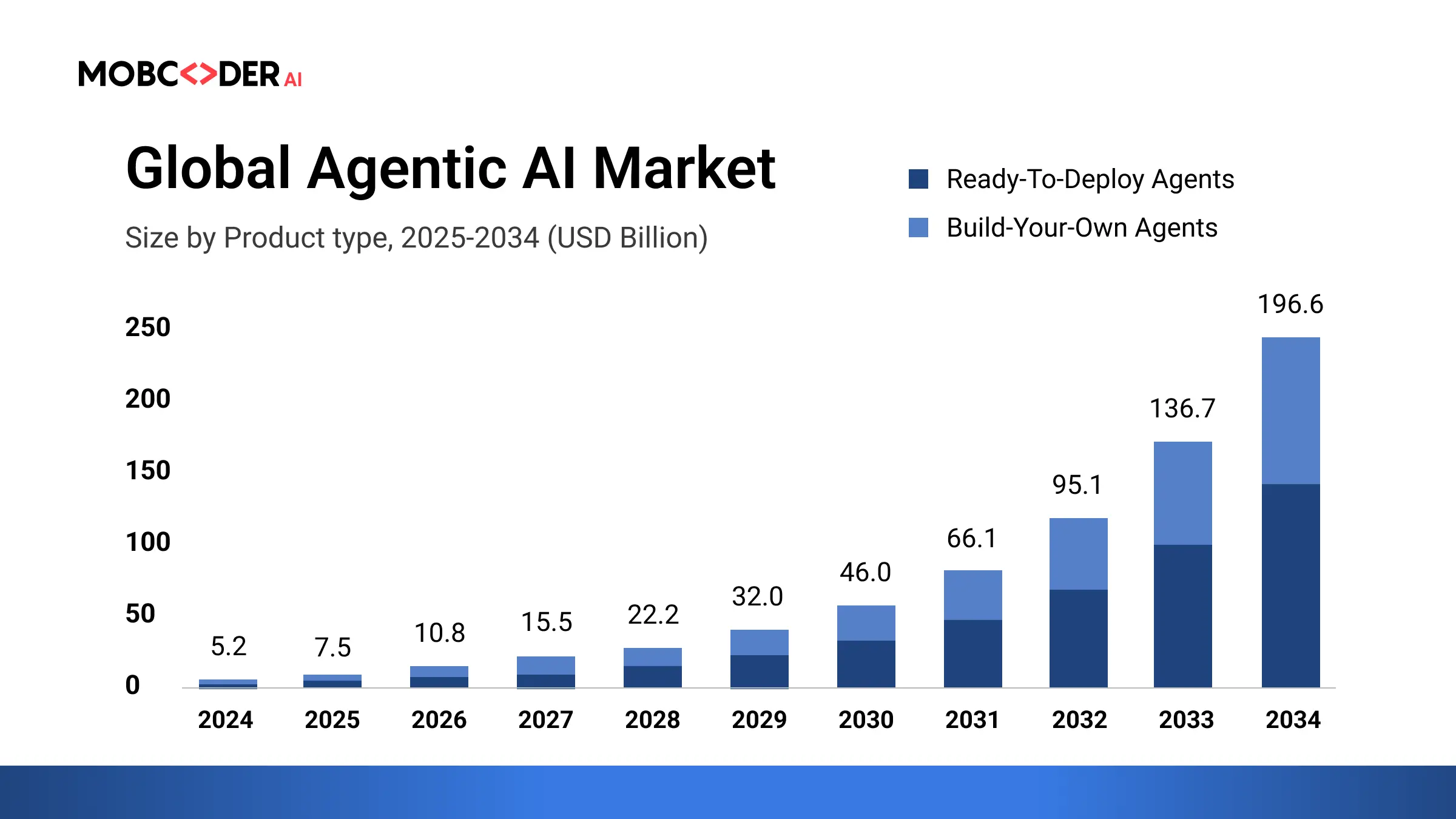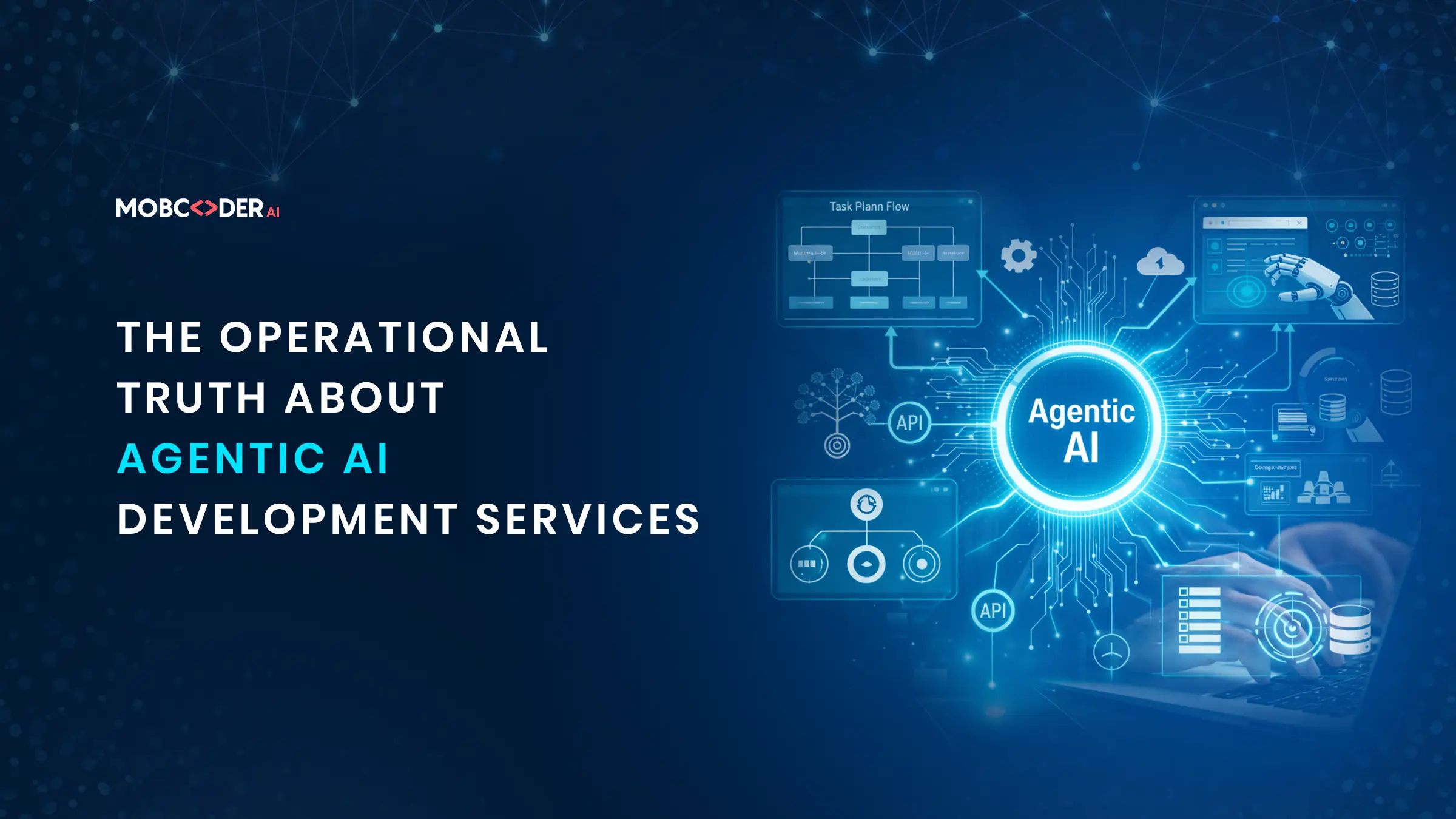August 07, 2025
Girijesh Kumar
What is Agentic AI?
What Are Traditional AI Firms?
Agentic AI Development Company vs Traditional AI Firms: Key Differences
Why Businesses Are Moving Toward Agentic AI
When to Choose Agentic AI Over Traditional AI
The Future of AI: Agentic Systems Lead the Way
FAQs About Agentic AI and Traditional AI Companies
Conclusion
The AI industry is evolving rapidly, and with it, the frameworks used to build intelligent systems are also changing. Traditional AI firms, which have dominated the field for years, are now facing a new kind of competitor: Agentic AI development companies. These companies focus on building autonomous, goal-driven AI agents that behave more like human collaborators than tools.
In this blog post, we'll explain the key differences between Agentic AI companies and traditional AI firms. We'll also explore why agentic models are gaining popularity, what makes them more adaptive, and how businesses can benefit from choosing the right kind of AI solution.
Agentic AI refers to artificial intelligence systems designed as autonomous agents. These agents are not limited to responding to commands or analyzing datasets — they can perceive environments, make decisions, pursue goals, and interact dynamically with other systems or users. Think of Agentic AI as proactive and self-directed, rather than reactive.
Agentic AI systems are increasingly built using multi-agent frameworks, goal-oriented architectures, and advanced reinforcement learning techniques. They are ideal for use cases like:
Also Read - Why We're a Top AI Software Development Company in the USA
Traditional AI companies have historically focused on building narrow AI solutions. These are models and systems optimized for specific tasks, such as:
These firms typically work on rule-based systems, machine learning models, and neural networks trained for fixed datasets and applications. While powerful, these systems usually lack autonomy or general decision-making capabilities.

Let's compare these two AI development paradigms across the most critical dimensions:
Agentic AI: Capable of autonomous action based on goals, environmental feedback, and long-term planning.
Traditional AI: Task-specific models that require explicit instructions and lack agency.
Agentic AI systems are like digital co-workers, making their own decisions. Traditional AI is more like a calculator — useful but dependent on user input.
Agentic AI Development Companies: Build modular, multi-agent architectures where each agent can have specialized roles, collaborate, and evolve.
Traditional AI Firms: Focus on single-model pipelines optimized for accuracy, not interactivity or adaptability.
Agentic systems are inspired by human reasoning and organization. Traditional systems often resemble static algorithms.
Agentic AI: Designed to adapt dynamically to new environments, learn on the go, and revise strategies.
Traditional AI: Performs well in stable conditions but fails to generalize outside trained scenarios.
In real-world applications like logistics or finance, environments change rapidly. Agentic AI thrives in such complexity.
Also Read - Why Hiring an AI Development Company Is Better Than Building In-House Teams
Agentic AI: Ideal for end-to-end automation, such as AI-driven task managers, autonomous operations, or multi-step workflows.
Traditional AI: Better suited for point solutions, like diagnosing a medical image or predicting customer churn.
Agentic AI solves problems that require strategy, prioritization, and iteration, while traditional AI excels in repetitive, well-defined tasks.
Agentic AI Development Companies: Emphasize collaborative intelligence, allowing multiple agents to scale across tasks and domains.
Traditional AI Firms: Rely on scaling models via more data or computing resources, not agent collaboration.
Agentic systems scale more organically and can work together to solve complex problems in real-time.
Agentic AI: Designed for dialogue, negotiation, and human-like interaction, improving usability in workplace environments.
Traditional AI: Interfaces are usually form-based, command-driven, or limited to outputs like predictions or classifications.
Agentic systems aim to be intuitive and conversational, closing the gap between human and machine collaboration.
Companies across industries — from finance to healthcare to logistics — are seeking smarter, more autonomous systems that can adapt and evolve with minimal human intervention. Here are some reasons why agentic AI is becoming a game-changer:
In short, Agentic AI enables a more human-like, adaptive intelligence model — not just predictive, but proactive.
Choose an Agentic AI development company if:
Stick with a traditional AI firm if:

The AI field is clearly moving from narrow AI toward generalized and agentic AI systems. Major tech companies like OpenAI, Google DeepMind, and Anthropic are heavily investing in agent frameworks, signaling a major shift in how intelligent systems are built and deployed.
While traditional AI is not going away, the future belongs to adaptable, goal-driven AI agents that can work with humans, not just for them.
Also Read - Top 10 Mobile App Development Companies in Singapore
Agentic AI is autonomous, goal-driven, and capable of multi-step decision-making, while traditional AI is task-specific, reactive, and relies on predefined models and data.
Not necessarily better — just different. Agentic AI is better for complex, dynamic environments, while traditional AI is ideal for specific, well-defined tasks.
Some components of traditional AI can be integrated into agentic systems, but full agentic architectures require a different design paradigm, including goal modeling, feedback loops, and autonomy.
Industries like logistics, finance, healthcare, customer service, and enterprise automation benefit most due to the need for adaptive, multi-tasking systems.
Consider your goals: if you need an autonomous system with decision-making capability, go with an Agentic AI development company. If your focus is on a predictive model for a specific problem, a traditional AI firm may suffice.
As AI continues to mature, the choice between Agentic AI development companies and traditional AI firms will shape how organizations automate, innovate, and scale. Understanding the key differences helps you make informed decisions for your business or product strategy.
Agentic AI is not just a trend — it's the future of intelligent automation.

Girijesh Kumar
February 18, 2026
10min

Marc Rothmeye
February 03, 2026
8min

Girijesh Kumar
January 27, 2026
9min